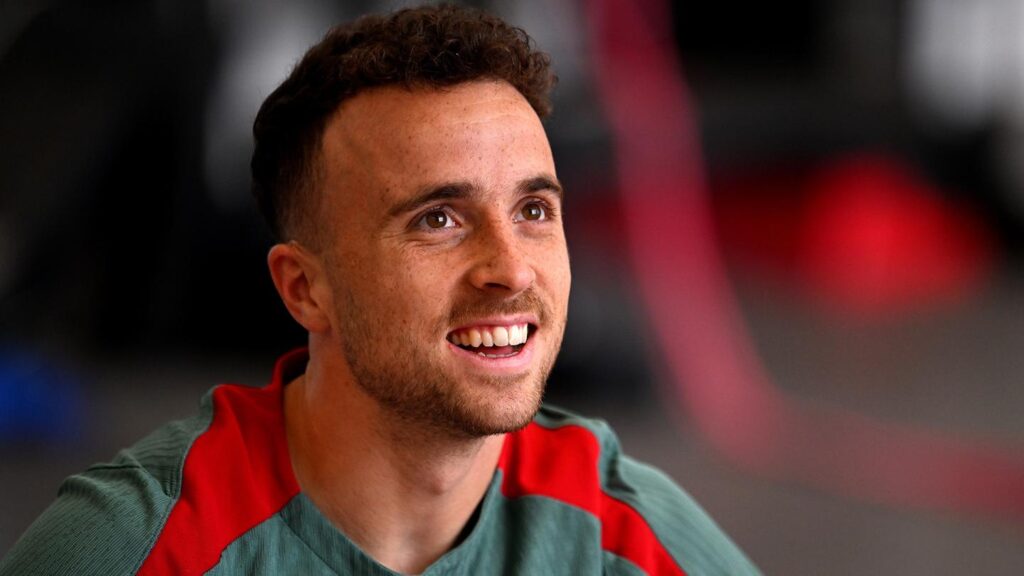You visited Anfield along with your wife earlier this week to pay your own respects. Are you able to put into words what that experience was like?
No. It’s almost impossible to put anything into words in this moment of time. Both of us felt it was the right thing to do to go there and pay our respects, not only me but definitely also my wife. To pay our respects to him, to his brother, to the family and to see – talking about pride again – the way our fans have shown how much they care about this club. After we won the league against Tottenham, how much they love the club, when we were having the parade, this is the club: if you play for this club it’s unbelievable when you win things, but in moments of tragedy I think it’s also unbelievable what these fans are doing.
So, the fans cannot have better players to play for them but us as players and staff can’t have better fans to support us. But it’s not only the fans. In the parade, it was only the Liverpool fans I assume. Now this time it was the complete city, it wasn’t only Liverpool, it was also the Everton fans. And not only this city but also all around the country and in the world. To represent this club in this city now even means more to me and to my wife than it did before.
It’s obviously very difficult to talk about football at the moment. There is a game on Sunday against Preston. Is it important for the team to get back on the pitch again now?
Nothing seems to be important if we think of what has happened. But we are a football club and we need to train and we need to play again, if we want it or not. What I’ve said to the players, I can say it here as well. It’s very difficult to find the right words because we constantly debate what is appropriate. What is appropriate in our actions? What is appropriate [for] what we have to say? Can we train again? Can we laugh again? Can we be angry if there’s a wrong decision? And I’ve said to them, maybe the best thing for us to do is handle this situation like Jota was. And what I meant with that is that Jota was always himself, it didn’t matter if he was talking to me, to his teammates, to the staff, he was always himself. So let us try to be ourselves as well. So, if we want to laugh we laugh; if we want to cry we’re going to cry. If they want to train they can train, if they don’t want to train they can not train. But be yourself, don’t think you have to be different than your emotions tell you.
Second of all, Jots was the player that if things were really, really, really difficult, I always looked at him and said, ‘Now we need something special from you.’ And he delivered so many times in those moments. I can come up with all of these moments, even before I was here he had many of these moments as well. So we are in a very difficult time, so let’s try to do what Diogo did so many times. If it’s so difficult then try a little bit harder or just keep on going and try to make it work.
The last thing is that he was the player in our team I would say that mainly with him it was all about the team. And not only the players; also, like I said, the staff. If we want to go through this period we need to do this together. You’ll know this because you told me – he selected a photo after we won the league against Tottenham and he wanted to have that photo in his house. He decided not to take one of himself, he decided to take one with us as the whole group, the whole staff in front of our fans. That probably tells us as a team and everyone around the world how much of a team player he was.

